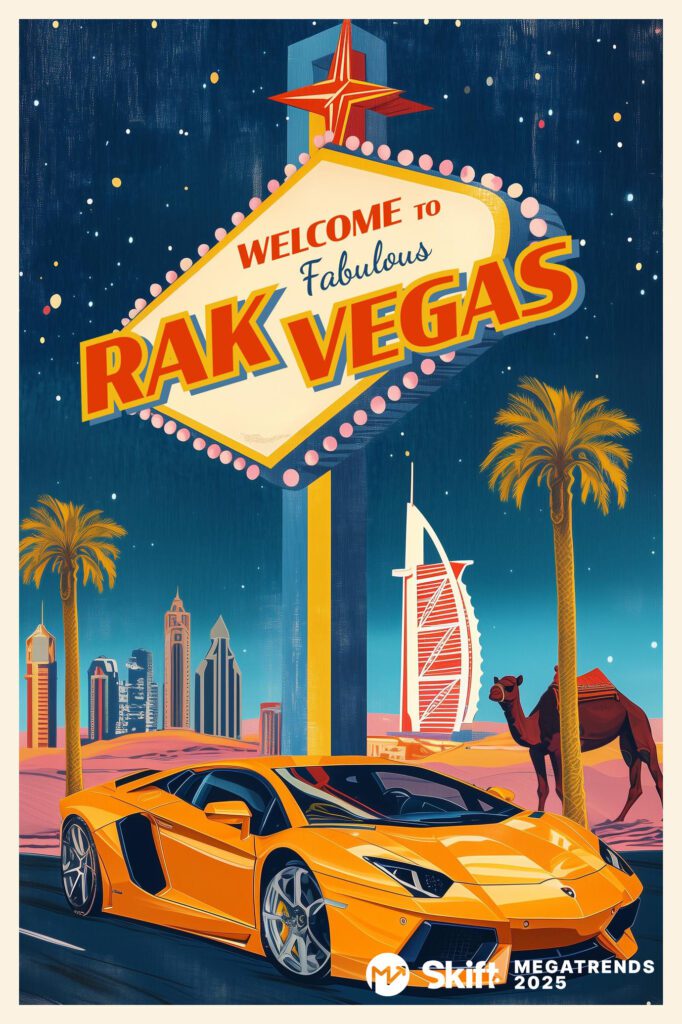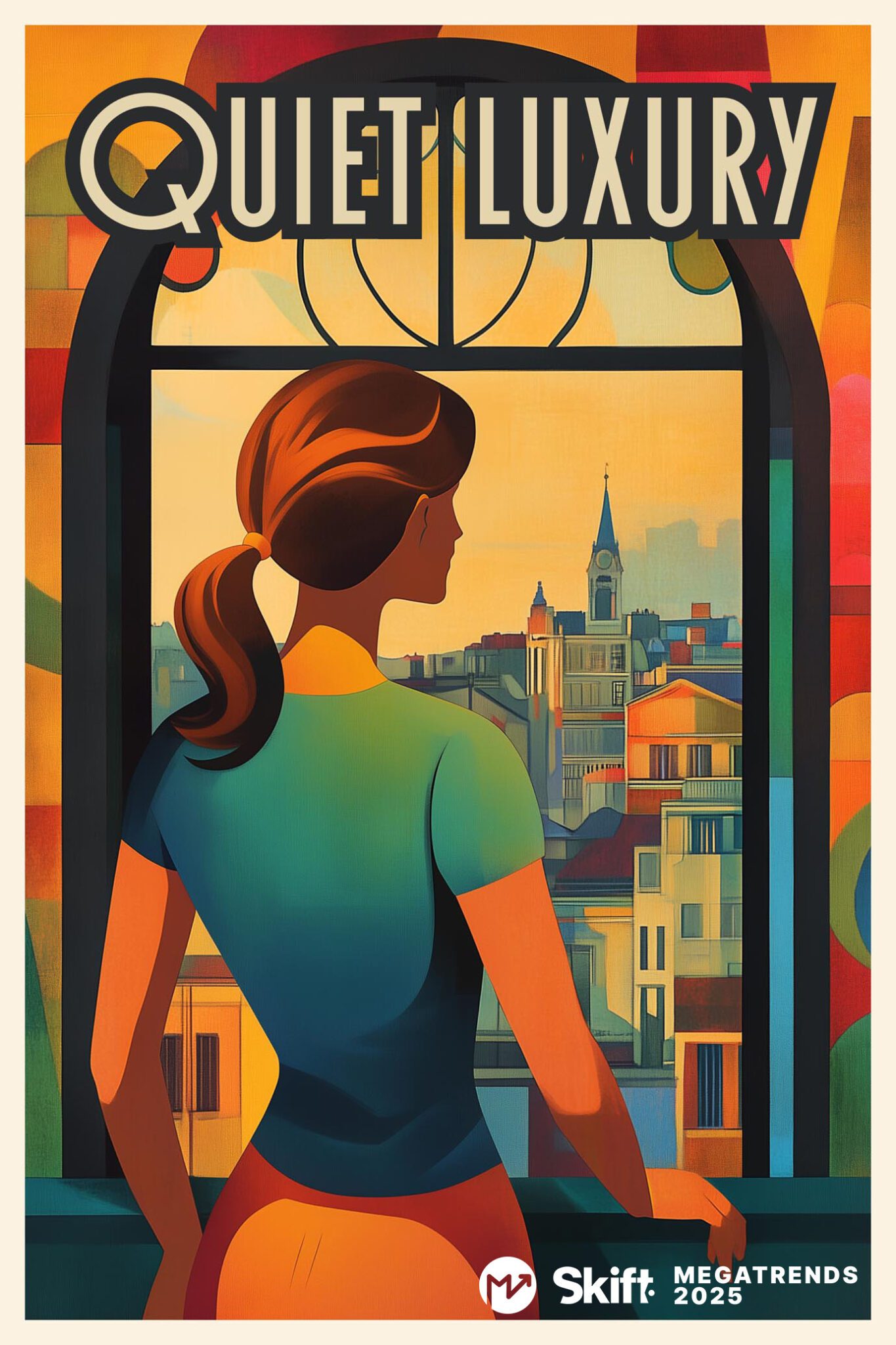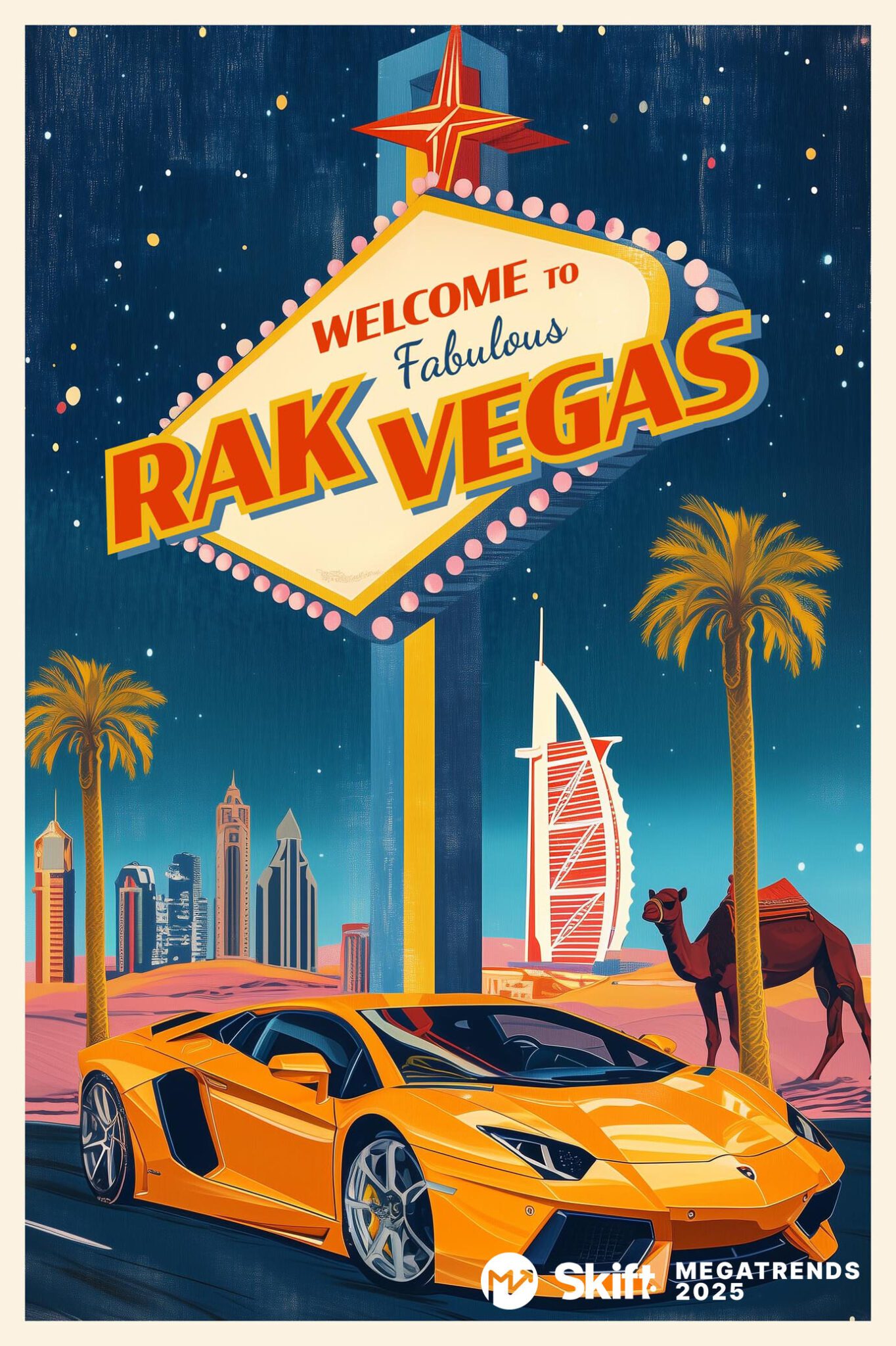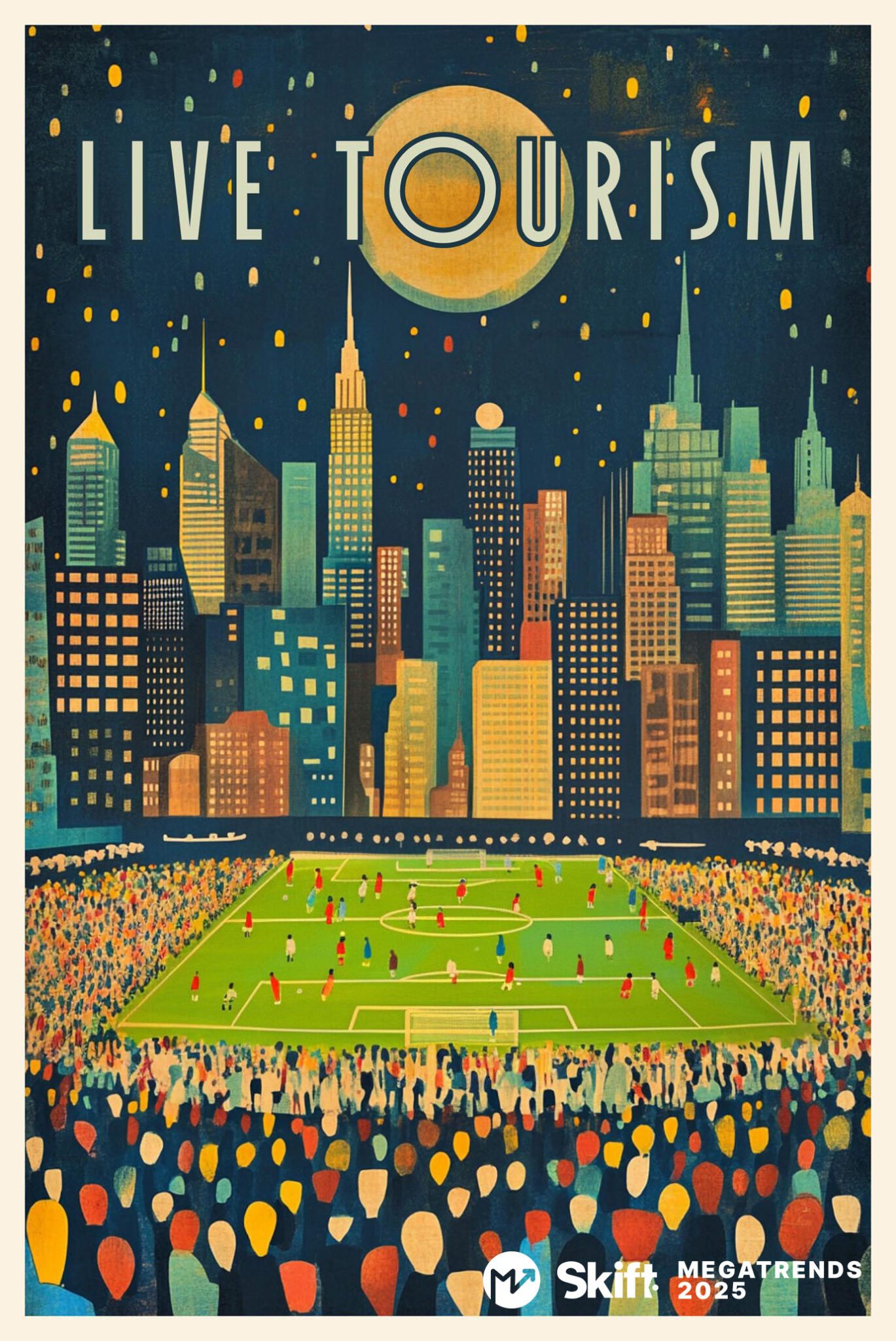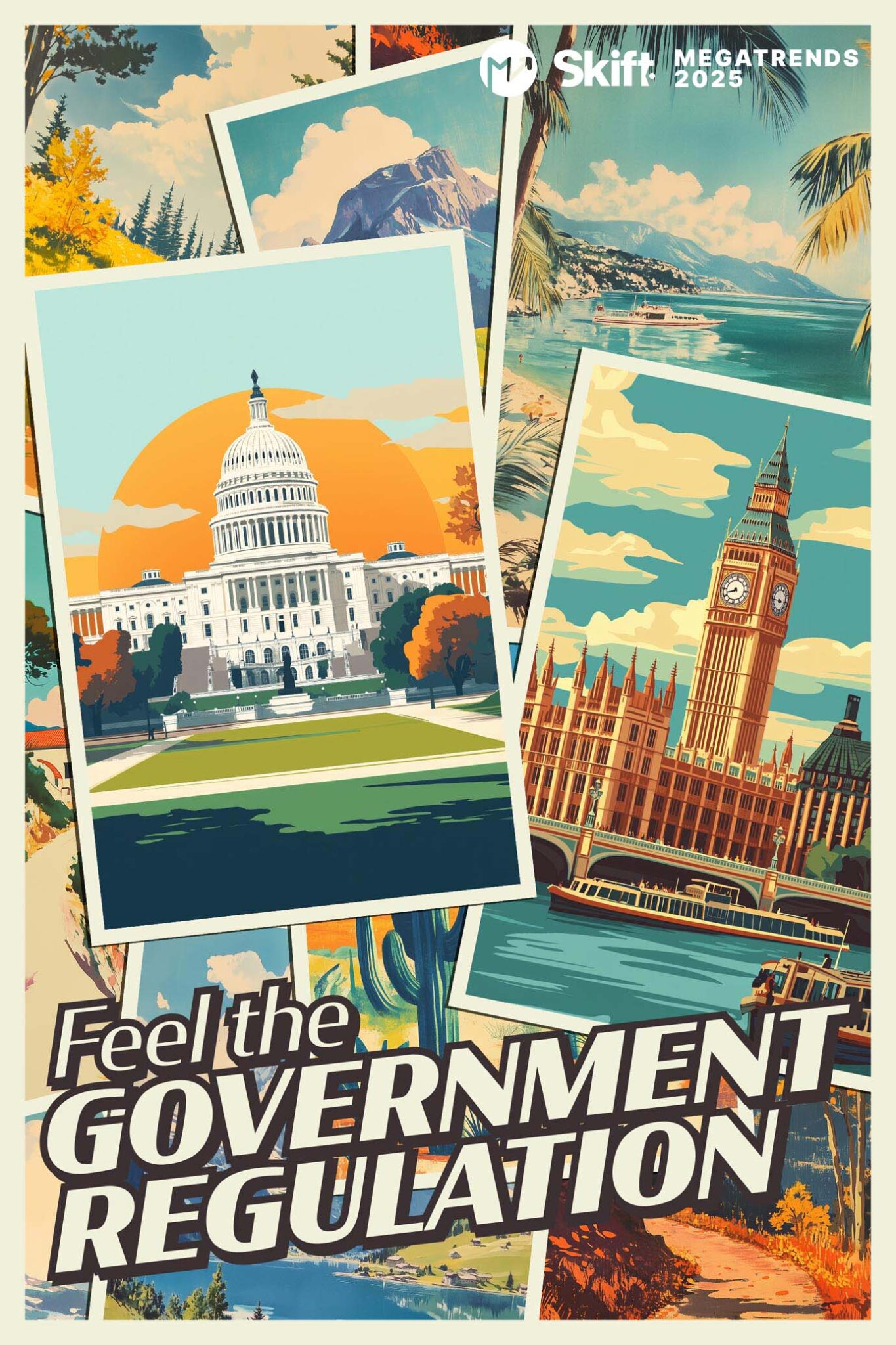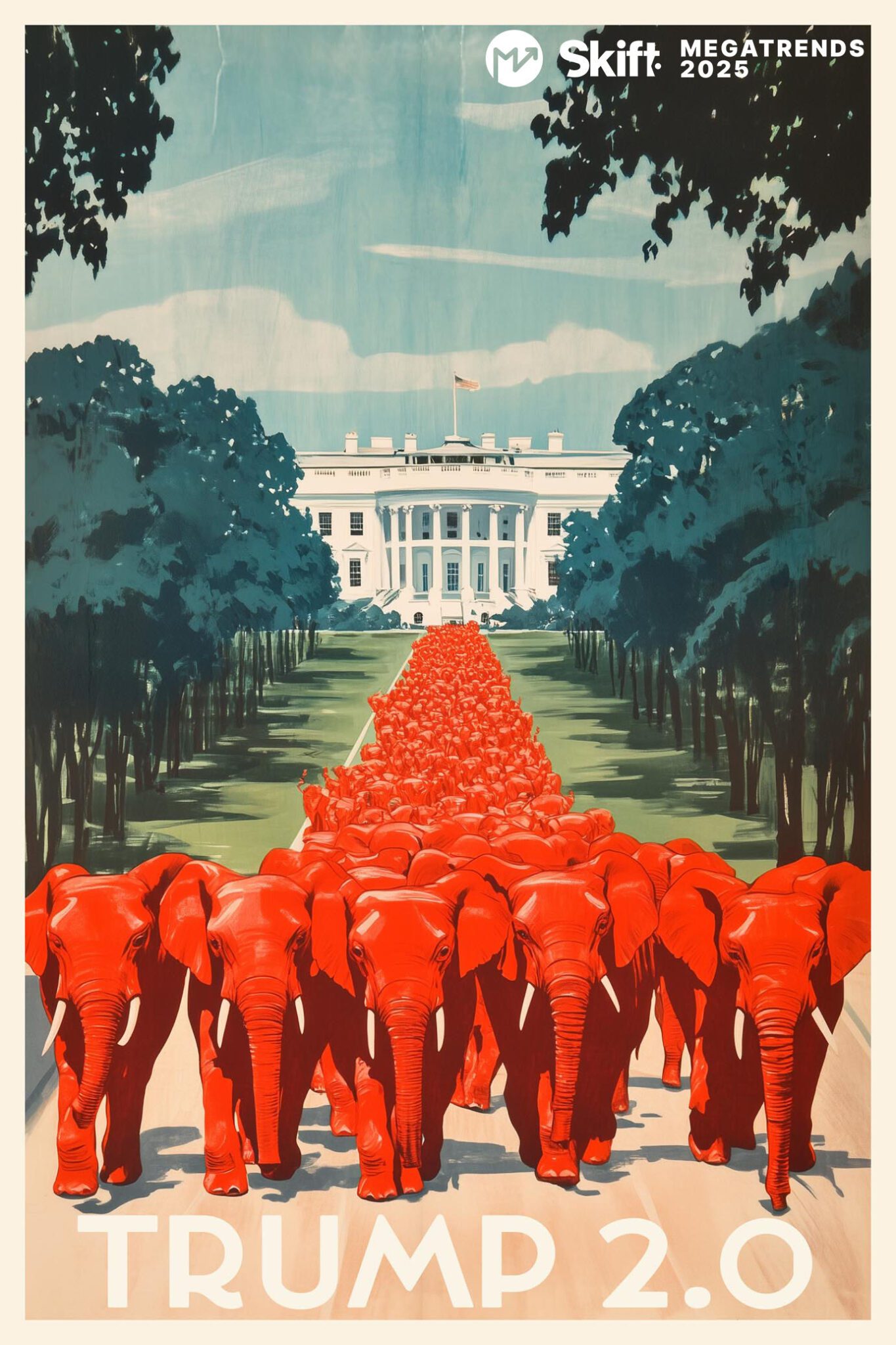The Middle East's Profound Cultural Shift
Heading into 2025, the UAE, Saudi Arabia, and the wider Middle East are set to experience one of the most profound cultural shifts in history.
The changes are clear throughout the region: The UAE is steaming ahead with its new gambling economy. Music and entertainment are becoming one of the hottest sectors in the Gulf. Despite chatter about delays, Saudi Arabia will continue to make progress on Vision 2030 - its plan to transform its economy.
In Saudi, the changes are evident in small details. Visitors will see female tour guides and women with their hair down.
Tourism campaigns show how Saudi is both using its unique culture as a draw for tourism while promoting how it’s changing.
In August, the Saudi Tourism Authority introduced a campaign centered around a solo female traveler. “I was the first. But I won’t be the last,” the actress says at the end of the video for “This Land Is Calling.” In an earlier ad, “Beyond What You Think,” football superstar Lionel Messi aims to break “outdated stereotypes.”
Riyadh Air, designed to connect Saudi to the world, will take its first commercial flight.
The new airline, helmed by former Etihad boss Tony Douglas, aims to serve most major cities, including those in the Americas. Douglas’ goal is to make it one of the most modern companies in aviation – “more in common with Amazon, noon.com [a Middle Eastern online retailer] and Uber” than other airlines, Douglas said in October.
The carrier will also do away with traditional uniforms, opting for more modern and fashionable attire.
The kingdom’s many mega projects are also taking shape. And they promise a very different culture.
In particular, The Red Sea, a luxury coastal tourism project along the coast, is helping to usher in a new kind of leisure travel. The Red Sea plans to house solely five-star hotels, and by 2030 will have 50 of them. A total of 16 should be up and running in 2025.
Saudi has had five-star hotels for decades, but they have often been ornate, traditional, and used mostly by business travelers. The Red Sea openings in 2025 include a Faena, a party-focused brand under Accor; an Edition from Marriott; a Grand Hyatt, and many more.
Diriyah Gate, located just outside of Riyadh, is set to open an Armani-branded hotel, a Park Hyatt, the super-exclusive Aman Resort, and a handful of others.
In December, Spanish hotel operator Palladium announced a partnership with Hard Rock International to open Hard Rock hotels in the kingdom. The number of Hard Rock properties opening and the timeframe are unknown, but Saudi Arabia's decision to choose a brand more typically seen in the likes of Hollywood and Las Vegas shows how times are changing.
The Start of ‘RAK Vegas’
One of the most important cultural shifts happening in the region is in the UAE, where a new gaming sector is being formed.
In Ras Al Khaimah, informally known as RAK, Wynn Al Marjan Island’s opening in 2027 is expected to be the first gaming resort in the region and has already received the green light from the federal gaming authority to operate a casino. And while the multi-billion-dollar project is still three years from opening, the impact of its creation can already be felt in the country.
Wynn expects most of its business will come from people already living in Dubai, rather than overseas travelers, according to an investor presentation.
This marks a shift in how the UAE’s consumer landscape is evolving. Historically, the country has built its economy around attracting foreign visitors and investors, luring them with ultra-luxury experiences and world-class infrastructure. Now, companies like Wynn are betting on a growing appetite for high-end leisure among the UAE’s cosmopolitan and increasingly affluent population.
For the UAE, it’s a turning point. The country is positioning itself as a fully integrated global hub, where tradition coexists with growth and diversification.
Big Events Drive Culture
This rapid adoption of globally recognized entertainment brands reflects a broader trend: the Middle East is transforming into a magnet for mega-events and high-profile venues.
In January, Coldplay will perform three shows in Abu Dhabi as part of its Spheres World Tour. Ed Sheeran will perform in Qatar and Bahrain next spring.
In Saudi Arabia, the country has its own music events company called MDLBeast. In April, the cultural desert landscape of AlUla will host an MDLBeast event for one night, turning the area into an outdoor concert.
And then there is the entertainment and technical spectacles, like the announcement that there would be a Sphere in Abu Dhabi. Much like the original Sphere in Las Vegas, it signals the region’s push toward claiming itself as the futuristic epicenter for immersive entertainment and global mega-events.
For Abu Dhabi, already home to a Formula 1 track and a packed UFC calendar, the Sphere doesn’t just signify an appetite for innovation, it underscores the UAE capital’s ambition to position itself as a premier destination for world-class events. From immersive concerts to cutting-edge digital performances, the Sphere concept aligns with Abu Dhabi’s strategy of blending high-tech infrastructure with global pop culture.
A Push for Female Travel
Not all cultural shifts have to be for the benefit of making money, some happen on a much more human level.
In April 2024, Intrepid Travel announced a women’s-only tour in Saudi Arabia — led by women, for women.
The launch follows several years of progress for Saudi women, who gained the right to drive in 2018 and to be tour guides in 2019. As the country seeks to become a leading travel destination, the percentage of women who make up the tourism workforce has skyrocketed to 45%.
“[This tour] effectively means that we can speak to women and we can meet women who own businesses, women guides, women who run restaurants,” Zina Bencheikh, the managing director of EMEA for Intrepid Travel.
In fact, female travel is something the Saudi Tourism Authority wants to do more of.
“One thing we’re not doing well… [is talking about] safety for women, we should tell the world more about how safe Saudi is [for women],” STA CEO Hamidaddin told Skift in May. “We’re going to tell the world how safe it is for our mothers, sisters and daughters, our female travelers.”
Hessa Almazroa shows how important cultural changes can be on a personal level. In 2017, she became the country’s first female general manager - the highest position in a property. When she spoke to Skift as part of our Generation Next series, she spoke about how the sector is changing for female professionals.
“[Working in hotels] was an opportunity to show that a Saudi female could do something different,” she told Skift, now GM of Novotel Riyadh Sahafa. “I waited for a long time to prove that some of the female [leaders] can do something different... It’s not an easy way or easy at all, but I insist [it’s] a fun journey.”
Today, half the staff at her hotel are Saudi nationals, and over 30% of the hotel’s leaders are women.
“I want to ensure that women in leadership are not just supported but feel secure to step into these roles and thrive.”
More Trends
Stay Ahead of the Megatrends With The Daily
Skift's morning newsletter delivers breaking news, features, and exclusive analysis from around the world straight to your inbox, five days a week.

